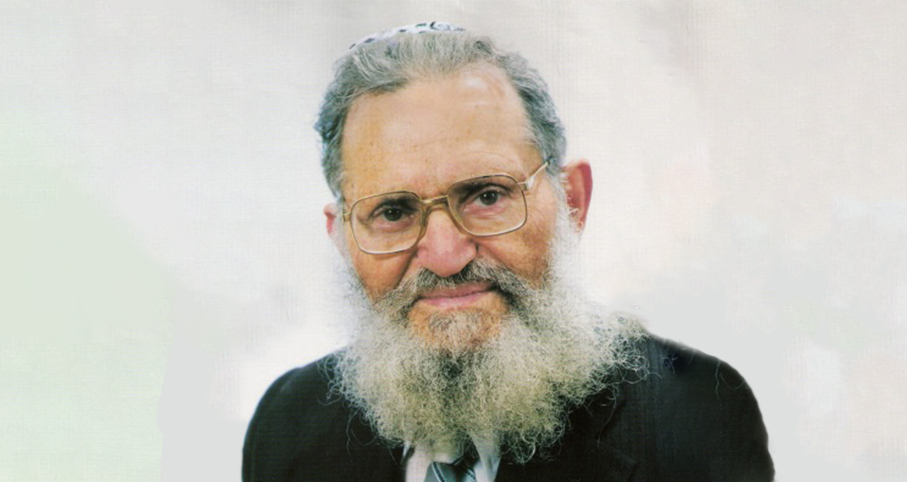- Sections
- Parashat Hashavua
- Torah Portion and Tanach
- Terumah
6
Historically, Am Yisrael have tried to build beautiful "mini-Temples" – shuls, which have served our nation, especially after the destructions of the first and second Batei Mikdash. They based this practice on the pasuk "Zeh Keili v’anveihu" (this is my G-d, and I shall adorn Him) (Shemot 15:2). Chazal learned from here that "A person is required to have pleasing tzitzit, a pleasing mezuza …, to write a pleasing sefer Torah … make pleasing mitzvot before Him, as Rabbi Yishmael said" (Sofrim 3:17). Yet, we find an alternative derivation – "Abba Shaul said: Resemble Him – just as He is compassionate and merciful, so should you be compassionate and merciful" (ibid.). What is behind these varied opinions?
Rabbi Yishmael saw the precious materials as an obligation and a fulfillment to adorn mitzvot. In contrast, Abba Shaul saw the spiritual "adornment," by perfecting one’s personal characteristics (being compassionate …) and clinging to the spiritual elements of service of Hashem, as a Jew’s primary mission in life.
"There is gold and a multitude of pearls, but the lips of knowledge are the precious vessel" (Mishlei 20:15). A midrash applies the pasuk to Moshe’s sadness that he had not contributed to the project of the Mishkan ("there is gold") and Hashem’s reassurance that the wisdom Moshe spoke to the people ("lips of knowledge") were more precious (Vayikra Rabba, Vayikra 1:6). Moshe brought the nation the ultimate wisdom, the Ten Commandments and the rest of the Torah, which taught all the principles of law and justice. This is much more precious than the gold and precious stones others gave. This is in line with Abba Shaul’s stress of the spiritual elements of adorning our relationship with Hashem.
The continuation of the midrash provides us with a memorable saying: "If you have acquired wisdom (da’at), what are you missing? If you are missing wisdom, what have you acquired?" Da’at is the most valuable commodity, and one should dedicate his whole life to acquiring it. What exactly is da’at? In looking for the meaning of a word in Tanach, we should look at the first place its root appears. Regarding the root da’oh, it is Adam "knowing his wife Chava" (Bereishit 4:1).
A man and woman who establish a home together have the potential to turn it into a dwelling place for the Divine Presence (see Sota 17a). Their physical connection must be an expression of a deep, lofty, spiritual connection. Similarly, while Bnei Yisrael were commanded to build a physical Mishkan, the Torah promises that it would lead to, "I will dwell among them" (Shemot 25:8), i.e., in the Mishkan and within every family. This gives context to Shir Hashirim, which compares the connection between Hashem and Bnei Yisrael to romantic feelings between a man and woman. Just like the physical contributions to the Mishkan did not suffice, neither do the physical elements in the building of a family.
Our emphasis on building and preserving strong connections between spouses and within the nation are preconditions to defeating our enemies and reestablishing a Beit Hamikdash in our times.

Parashat Hashavua: We Want a Jewish Judicial System Now!
Rabbi Yossef Carmel | Shevat 5785

Parashat Hashavua: What Will Happen in the “End of Days”?
Rabbi Yossef Carmel | Tevet 5785

Holy and Separate
Rabbi Shaul Yisraeli zt"l | 5774

Parashat Hashavua: Who Called Out to Whom?
Rabbi Yossef Carmel | Nisan 5785

Historical View of Rav Mordechai Yaakov Breish (Chelkat Yaakov)
Various Rabbis | 5775

Why is Hafrashat Challah So Important
Rabbi Yosef Tzvi Rimon | 5778

Parshat Shemini
The Mishkan: Dedication, Anticipation, and Crisis
Rabbi Hillel Geffen | Nisan 5761

Separating Challah
Rabbi Yirmiyohu Kaganoff | Sivan 17 5776

CLEANING FOR PESACH: BETWEEN 'FEELING' & 'BEING' RELIGIOUS
Rabbi Ari Shvat | Nisan 5785
Daf Yomi Makkot Daf 11
R' Eli Stefansky | 21 Nisan 5785

P'ninat Mishpat: Unsuccessful Transfer of Yeshiva – part IV
based on ruling 82138 of the Eretz Hemdah-Gazit Rabbinical Courts
Beit Din Eretz Hemda - Gazit | Nisan 5784














